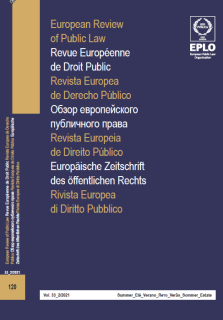
Constitutional Law / Droit constitutionnel
2020
The Netherlands / Pays-Bas
PhD Candidate in Constitutional Law at Utrecht University (m.j.vetzo@uu.nl)
The COVID-19 pandemic posed numerous difficult constitutional questions. Among them were the legal basis for measures that limited fundamental rights, the outdated nature of Dutch emergency law and the functioning of Parliament in pandemic times. The largely decentralised approach that characterised the government’s response at the start of the pandemic, eventually gave way to a sturdy, democratically more legitimate legal basis (the Temporary Corona Act). The act struck a balance between the right to health and effective government on the one hand and a wide range of other fundamental rights and the need for democratic involvement on the other. This complex balancing exercise, however, will likely continue to dominate the public and constitutional debate in the year(s) to come. COVID-19 also gave rise to some remarkable instances of Dutch-style constitutional adjudication. The attitude of the judiciary in that regard can be characterised as one of deference. The SyRI-case, concerning an algorithmic fraud detection system, constitutes a hallmark decision when it comes to judicial control of new technologies on grounds of human rights. Pending proposals to amend the Constitution deal with extending the grounds of discrimination in Article 1 of the Dutch Constitution and the introduction of a corrective referendum.
La pandémie de COVID-19 a posé de nombreuses questions constitutionnelles difficiles. Parmi elles figuraient la base juridique des mesures limitant les droits fondamentaux, le caractère obsolète du droit d’urgence néerlandais et le fonctionnement du parlement en période de pandémie. L’approche largement décentralisée qui a caractérisé la réponse du gouvernement au début de la pandémie a finalement cédé la place à une base juridique solide et démocratiquement plus légitime (la loi temporaire Corona). Cette loi a trouvé un équilibre entre, d’une part, le droit à la santé et à un gouvernement efficace et, d’autre part, un large éventail d’autres droits fondamentaux et la nécessité d’une participation démocratique. Cet exercice d’équilibre complexe continuera probablement à dominer le débat public et constitutionnel dans les années à venir. Le COVID-19 a également donné lieu à quelques exemples remarquables d’arbitrage constitutionnel à la néerlandaise. L’attitude du pouvoir judiciaire à cet égard peut être qualifiée de déférente. L’arrêt SyRI, concernant un système algorithmique de détection des fraudes, est une décision emblématique en matière de contrôle judiciaire des nouvelles technologies au regard des droits de l’homme. Les propositions en cours concernant la modification de la Constitution portent sur l’extension des motifs de discrimination visés à l’article 1er de la Constitution néerlandaise et sur l’introduction d’un référendum correctif.





















